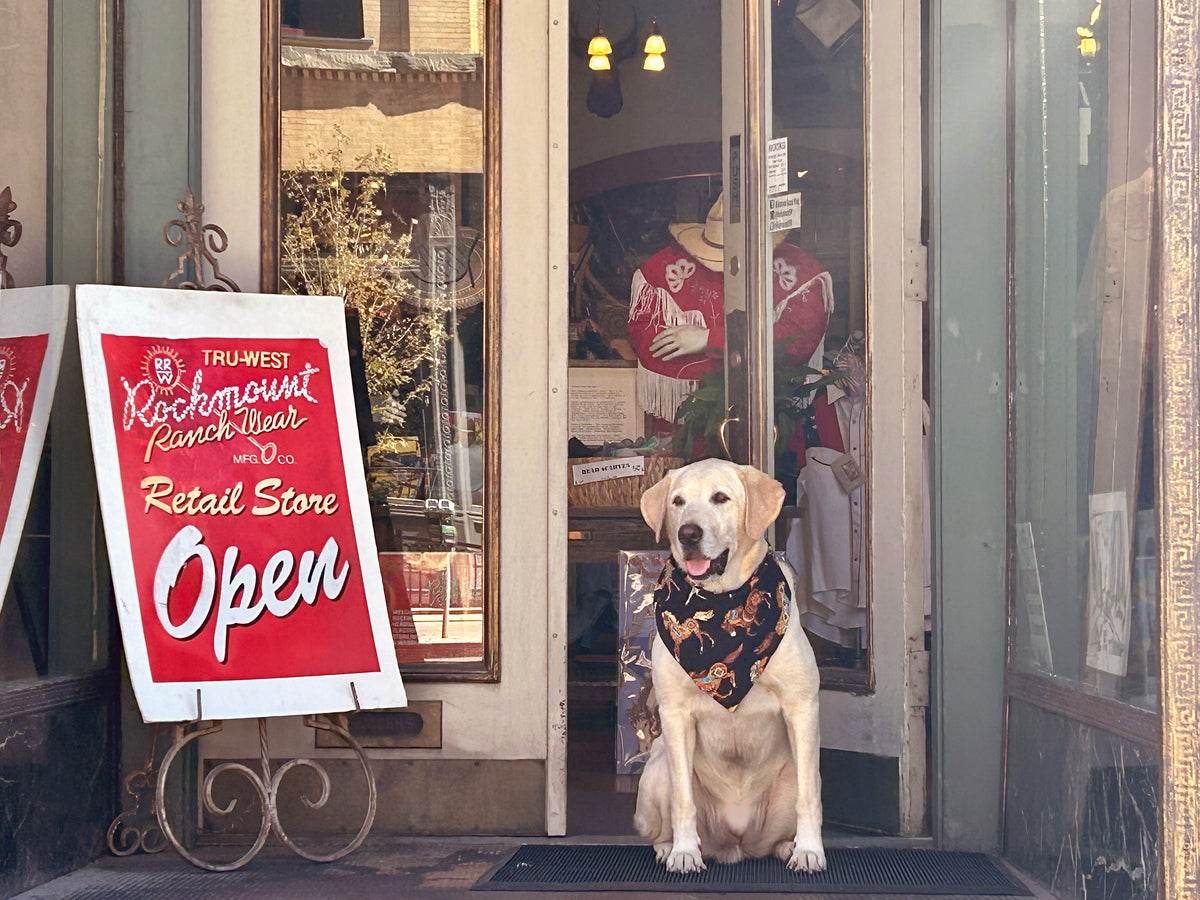The Denver Post - Regional Nonfiction

Regional Nonfiction

By SANDRA DALLAS and SPECIAL TO THE DENVER POST | The Denver Post
PUBLISHED: May 14, 2009 at 12:51 pm | UPDATED: May 6, 2016 at 9:13 pm
Ask Papa Jack: Wisdom of the World’s Oldest CEO, by Steven E. Weil, $15.95. Many years ago, someone wrote a novel titled “Men to Match My Mountains.” Throughout its history, the West had been blessed with men of vision and action. Just ask Steven E. Weil, whose grandfather was known affectionately as Papa Jack to nearly everybody in Denver.
Papa Jack Weil, America’s oldest CEO, died last August at age 107, still in the saddle of Rockmount Ranch Wear Manufacturing Co., the business he founded in 1946.
Also known as Jack A. (his son, who predeceased him by a few months, was Jack B.), Papa Jack invented the Western shirt, with its distinctive yoke, shotgun cuffs, sawtooth or smile pockets and snap buttons. The shirt is iconic, worn by Robert Redford, Eric Clapton, the actors in the movie “Brokeback Mountain” and almost anybody who admires the cowboy life.
But it was not just the design that made Rockmount an institution, according to Steve, who now runs the company in Lower Downtown Denver. “Ask Papa Jack” is the story of how Jack A’s philosophy of quality, hard work, financial prudence and loyalty permeated the company.
Family memoirs tend to be, well, a little boring. But not this one. Compiled by Steve, the book contains stories about the Weil patriarch by everyone from Denver’s mayor to Steve’s young son. There are pictures of family and company, nuggets of Papa Jack’s wisdom, vignettes of his life. This is not just a paean to the family patriarch, but a sometimes humorous look at a crusty old man who was an awful driver and a smart aleck, but who was a stickler for old-fashioned values that ruled his life and his company.
And yes, there are nuggets that will help you run a company.
As Big as the West: The Pioneer Life of Granville Stuart, by Clyde A. Milner II and Carol A. O’Connor, $34.95. There is something tragic in this history of Granville Stuart, the Montana pioneer. Stuart was one of the first to discover gold in the state, and he played a major part in early cattle ranching, but he spent the last third of his life hitting up friends for loans, dunning old partners and besieging politicians for jobs.
And despite his place in history as an early visionary, Stuart was less than exemplary in encouraging the “civilizing” of Montana.
He became part of a cattleman vigilante group responsible for hanging many outlaws, some of whom died for minor offenses. And married to a Shoshone woman for 26 years, he considered leaving her and their children — they had 11 — if he received a political appointment to South America. He didn’t, but after she died, Stuart married a white woman and abandoned his children, putting three of them, including an infant, in an orphanage.
All this makes Stuart a complex and very interesting man. “Success would have made him dull,” conclude his biographers, Clyde A. Milner II and Carol A. O’Connor.
Stuart and his older brother, James, arrived in Montana in 1857. Both brothers took Indian wives, although James’ marriage didn’t last and he turned to Indian prostitutes, noting in his journal the amounts paid and the length of liaisons.
After his brother’s death, Stuart gave up his mercantile and mining business to manage a ranch of which he was part owner. He worked hard, but lost his position after the big die-off, followed by the death of his Indian wife. He quickly married a white woman, causing his son-in-law, the famed cowpuncher and writer Teddy Blue Abbott, to write, “He is surely crazy and worst of all in my opinion a rank Sucker.”
The authors have done extensive research, and “As Big As the West” is a well-rounded biography of a flawed Western giant.
John Mackay: Silver King in the Gilded Age, by Michael J. Makley, $34.95.John Mackay was as successful as Granville Stuart wanted to be. As one of the Comstock’s silver kings, he made a fortune. But he was one of the West’s good guys, known as “the honest miner.”
When other bonanza giants wanted to cut wages, Mackay stood by the working men. As a mine owner, he was confident and hardworking, showing up in the mines each day to assess operations. He was also generous and unassuming. One story tells that he visited the wife of a man who disappeared after embezzling money, leaving the wife destitute. Mackay suggested that the woman look through the man’s coat to see if he had left money behind. She did and found some $3,000 — left there, apparently, by Mackay.
Biographies of good people sometimes lack interest, but this one is filled with engrossing details about the frauds and stock manipulations that made up the precious-metals industry in the late 1800s.
Sandra Dallas is a Denver novelist who writes regularly about new regional nonfiction.
